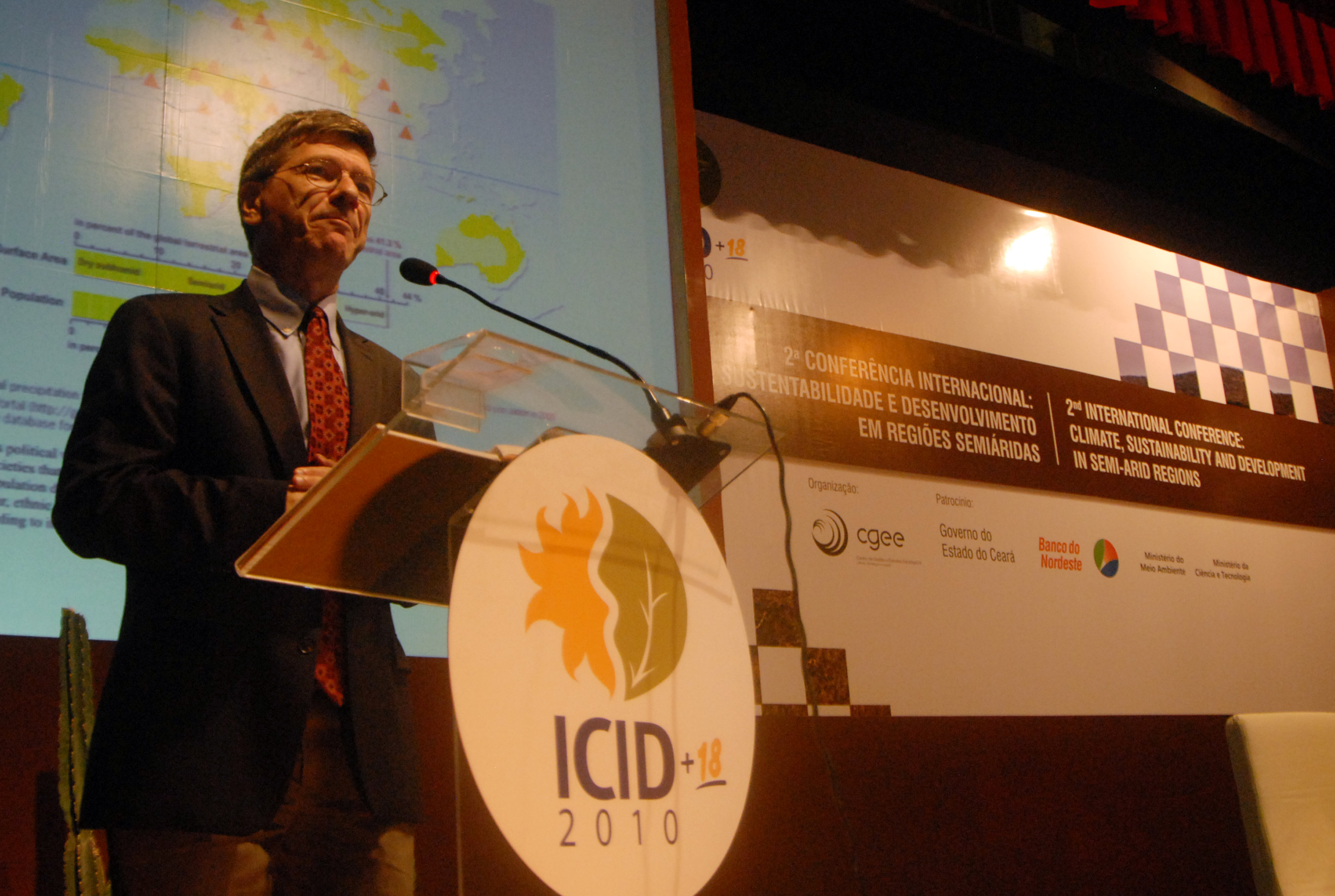
Organized by the Center for Management and Strategic Studies of the Brazilian Government, ICID+18 gathered government representatives and over 2,000 global experts to discuss climate change and identify actions to promote sustainable development in semi-arid regions.
These regions tend to be the world’s poorest and most conflicted areas. Jeffrey Sachs, Special Advisor to United Nations Secretary General Ban Ki-moon, said at the event that military intervention in those areas is more damaging to the inhabitants of these regions than the problems caused by climate change.
“Sending troops to preserve the political interests of rich countries in such areas will not solve the problems,†he said. Sachs, who is also Director of The Earth Institute at Columbia University, warned that we are very close to an irreversible climate condition for the planet, and “everyone will be affected equally.â€
In these dry regions, he suggested that “it would be more useful for military engineers to teach how to dig wells for water than to develop war artifacts.â€
Sachs asked to receive a copy of the Letter of Fortaleza, a summary document of recommendations from ICID+18, to incorporate into the next meeting of the UN Security Council in September.
“I’m sure that the suggestion will be embraced by Secretary Ban Ki-moon, who is sensitive to climate issues worldwide,†he said.
Sachs also suggested the creation of a body bringing together leaders and governments of countries from arid and semi-arid regions to pressure the developed countries to devote more resources, support, science and technology to their areas, as a way to help resolve their problems. These conflicts, “although local, reflect on everybody,†said Sachs.
During the conference, Secretary of Climate Change and Environmental Quality Branca Americano of the Brazilian Ministry of the Environment announced that the national Climate Fund will invest around US$ 114 million in adaptation and mitigation programs in Brazil in 2011.
She said the Brazilian semi-arid regions are a priority for the allocation of funds, especially for projects to adapt to climate change. “We view adaptation as an opportunity to act, and this is essential because climate change will hit the region in a severe way,†she warned. The steering committee of the Climate Fund will be installed by the end of the year.
For more information, visit ICID+18





